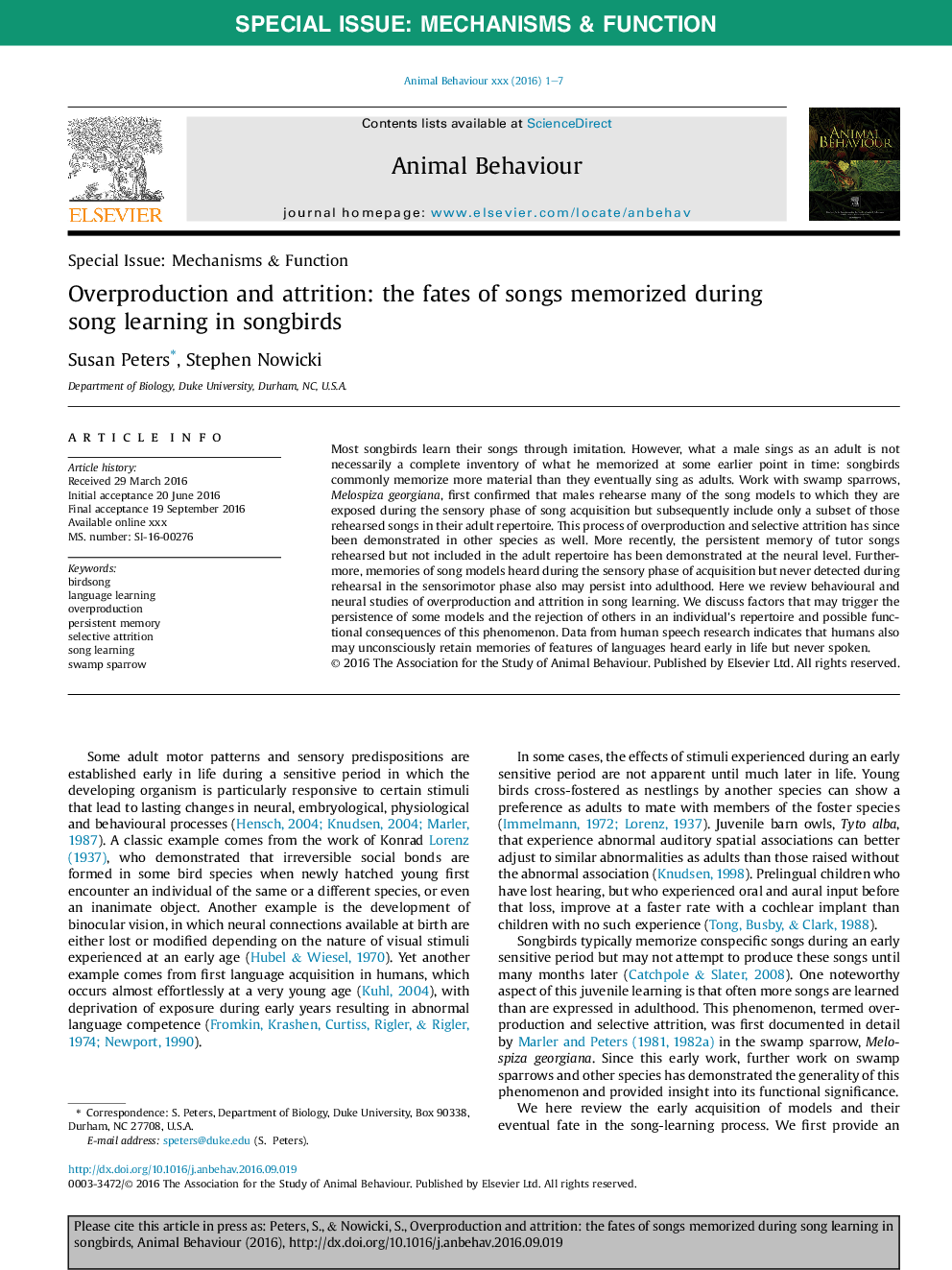ترجمه فارسی عنوان مقاله
موضوع ویژه: مکانیزم ها و کارکردن تولید و تخریب: سرنوشت آهنگ هایی که در یادگیری آهنگ در پرندگان آواز ذخیره می شود
عنوان انگلیسی
Special Issue: Mechanisms & FunctionOverproduction and attrition: the fates of songs memorized during song learning in songbirds
| کد مقاله | سال انتشار | تعداد صفحات مقاله انگلیسی |
|---|---|---|
| 160484 | 2017 | 7 صفحه PDF |
منبع

Publisher : Elsevier - Science Direct (الزویر - ساینس دایرکت)
Journal : Animal Behaviour, Volume 124, February 2017, Pages 255-261
ترجمه کلمات کلیدی
پرندگان آموزش زبان، بیش از حد تولید، حافظه پایدار، خستگی انتخابی، یادگیری آهنگ، جلبک دریایی،
کلمات کلیدی انگلیسی
birdsong; language learning; overproduction; persistent memory; selective attrition; song learning; swamp sparrow;

